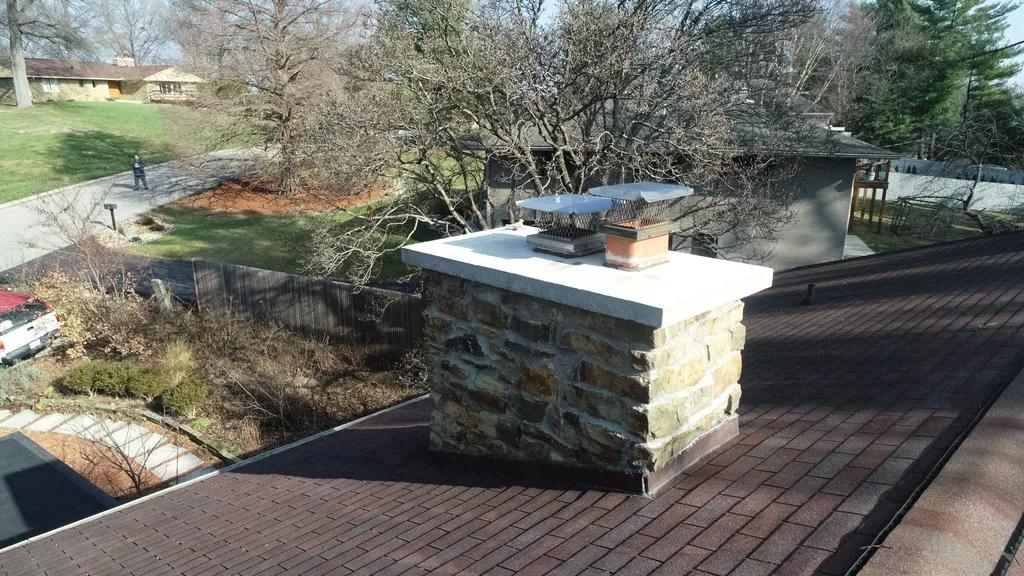Water infiltration through the chimney flue is a common yet often overlooked issue that can have damaging effects on both the structural integrity and safety of a home. In this article, we will explore the causes of chimney flue water infiltration, the potential consequences, and most importantly, discuss effective solutions to prevent and address this concerning issue.
Table of Contents
- Common Causes of Water Infiltration Through the Chimney Flue
- Signs of Water Damage Inside the Chimney
- Preventative Measures and Maintenance Tips
- Professional Solutions for Water Infiltration Issues
- Q&A
- In Summary

Common Causes of Water Infiltration Through the Chimney Flue
Water infiltration through the chimney flue is a common issue that many homeowners face. There are several common causes of water seeping into the chimney, which can lead to serious damage if left untreated.
Some of the most include:
- Poor chimney cap installation
- Cracked chimney crown
- Missing or damaged chimney flashing
- Cracked chimney flue liner
It is important to address these issues promptly to prevent further damage to the chimney and the home.

Signs of Water Damage Inside the Chimney
Water infiltration through the chimney flue can lead to various . One of the most common signs is the presence of efflorescence, which is a white, powdery substance that forms on the interior walls of the chimney. This substance is caused by water entering the chimney and reacting with the brick or masonry materials.
Another sign of water damage inside the chimney is the presence of rust on the damper or firebox. When water enters the chimney, it can cause metal components to rust, which can affect the functionality of the chimney. Additionally, water damage can also cause the mortar between the bricks to deteriorate, leading to gaps or cracks in the chimney structure. It is important to address any promptly to prevent further structural issues.

Preventative Measures and Maintenance Tips
Water infiltration through the chimney flue can cause a wide range of issues for homeowners, from structural damage to potential health hazards. To prevent this common problem, it is essential to take proactive measures and follow maintenance tips to protect your chimney and home.
**Here are some to help you avoid water infiltration through the chimney flue:**
- Install a chimney cap to prevent water from entering the flue.
- Regularly inspect the chimney for any signs of water damage, such as rust or efflorescence.
- Ensure the chimney crown is in good condition and properly sloped to direct water away from the flue.
- Clean the chimney regularly to remove any debris or blockages that could trap water.

Professional Solutions for Water Infiltration Issues
Water infiltration through the chimney flue can pose serious problems for homeowners. It can lead to structural damage, mold growth, and even fire hazards. Fortunately, there are professional solutions available to address this issue and protect your home.
One effective solution is to install a chimney cap. This simple device can prevent water from entering the chimney flue while still allowing smoke to exit. Additionally, waterproofing the chimney can provide an extra layer of protection against water infiltration. By taking these proactive measures, homeowners can ensure their chimney remains safe and dry for years to come.
Q&A
Q: What is water infiltration through the chimney flue?
A: Water infiltration through the chimney flue occurs when rainwater or moisture seeps into the chimney structure, causing potential damage to the chimney and fireplace system.
Q: What are the potential causes of water infiltration through the chimney flue?
A: Common causes of water infiltration through the chimney flue include damaged or missing chimney caps, deteriorated mortar joints, cracked chimney crowns, and faulty flashings.
Q: What are the consequences of water infiltration through the chimney flue?
A: Water infiltration can lead to structural damage, rusted components, mold and mildew growth, chimney leaks, and deterioration of the fireplace system.
Q: How can water infiltration through the chimney flue be prevented?
A: Preventative measures include regular chimney inspections and maintenance, installation of a quality chimney cap, repairing damaged mortar joints and flashings, and ensuring proper chimney crown maintenance.
Q: How can I tell if my chimney is experiencing water infiltration?
A: Signs of water infiltration through the chimney flue may include musty odors, water stains on the ceiling or walls near the fireplace, rusted components, spalling bricks or mortar, and visible water leaks.
Q: What should I do if I suspect water infiltration through my chimney flue?
A: If you suspect water infiltration, it is recommended to contact a professional chimney sweep or contractor to conduct a thorough inspection and determine the source of the issue. Prompt repairs and maintenance can help prevent further damage to your chimney system.
In Summary
In conclusion, addressing the issue of water infiltration through the chimney flue is crucial to maintaining the structural integrity and safety of your home. By understanding the common causes and potential solutions discussed in this article, homeowners can take proactive steps to prevent water damage and costly repairs in the future. If you suspect water infiltration in your chimney, it is recommended to consult with a professional chimney sweep or contractor to assess the extent of the problem and implement appropriate measures for long-term protection. Remember, a well-maintained chimney is not only essential for proper fireplace function but also for the overall well-being of your property. Thank you for reading.


